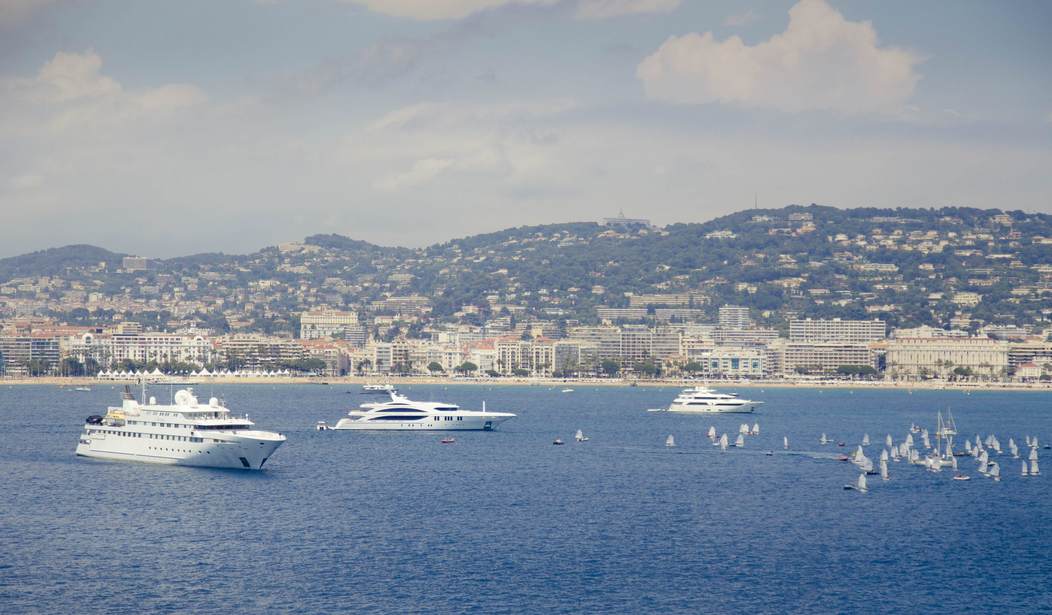There are lots of jokes about how the other half lives. However, I didn’t fully realize just how the other half lived until I got in the car last week, and turned the radio on to a commercial. I thought it had to be a spoof. The commercial opened with a plummy British voice saying, “I know your biggest problem is where to park your yacht.”
As I stared at the radio in disbelief, the commercial proceeded to cheerily – no, actually snootily – advertise a specific marina, whose price was somewhat lower than others, or its service better or something.
I’m not sure, because barring us winning the lottery (which would be more likely – note not likely – to happen if we bought tickets more than about twice a year. And then we buy them so we can dream for two days before the drawing and not in any expectation of winning) we’re unlikely to ever own a yacht. And even if we won the lottery, we’d be more likely to buy a publishing house or two.
The station then went on to advertise itself as Radio Riviera, the station for expatriates living in the South of France.
I’ve been in the South of France for the last two weeks – two days to go, and ya’ll better make sure I still have a country when I return. What with the whole Nork think I’m not confident, really. I’m doing research for a couple of books and staying mostly with a long-time fan who was kind enough to put my husband and me up.
The South of France (I assume) isn’t France — in the same way that any extremely touristic area isn’t that area, as such, but a touristic area. In fact, on three continents I’ve found that a beach area resembles other beach areas more than anything else.
Yet, there are people who live here, of course, and their living arrangements remind me much of the place where I grew up, with medieval infrastructure overlaid with modernity, in a bewildering way that sometimes works, and sometimes leaves you scratching your head.
Everyone in every shop is very friendly to English speakers, partly I suspect because a large part of the income for the region comes from tourism. (This is good, since while I still understand French if spoken slow and distinctly and can usually make a pretty good guess at how to say something, I find myself losing essential words which sometimes results in strange situations.)
Service still sucks in most restaurants, but I think that’s the result of tips being (literally) a foreign concept. I remember service rather lagged in the years when Portugal outlawed tipping. I mean, you’re going to get paid the same as the laziest waiter, anyway, so why bother bustling about?
There are children, but one gets the feeling, not as many as in America. Then again, how many parents bring their kids while on vacation? It could be an artifact of the region.
In the same way, there is one small church in the main area we stayed in, and that one church has one Sunday mass, which was maybe one-fourth full. For a population of ten thousand permanent residents, it seems very odd. So, what we heard about the de-Christianization of Europe seems to be right. Which is a little sad and perhaps worrisome in a country where every hilltop features either a castle or a church.
The other thing that struck me, as we bustled about from Roman amphitheater to castle to restaurant, was how many fruit trees grow everywhere unpicked. There are olive trees no one is harvesting, fig trees dropping their fruit onto the roadway, fields that were once planted and are now fallow.
I got this sense that over the millennia, Celts and Romans, Germans and Moors came and went, and yet the people on the land remained the same. They harvested their olives and pastured their goats, and sure, made the obeisances necessary to get by. They took advantage of what was offered too, whether panem and circus or the protection of castle and church. But in the end, their day to day lives didn’t change very much.
Now?
In the globally connected economy, in this modernity that descended upon them from outside, as it were, they live much better, but there is no point harvesting their own fruit or growing their own goats. The supermarket is full of the results of such labors, without their needing to perform it, and more money can be got by cooking for tourists or working in a dress shop.
Since the type of people worried about where to park their yacht aren’t that much affected by global downturns, I doubt they had to worry much, even while America was suffering in the Great Recession.
And part of me wants them to go on that way forever.
Because while there are Englishmen able to afford yachts, and Americans wishing to visit the monuments, and food in the supermarkets, it means the rest of the world is doing well enough.
Heaven help us all if it stops, though, because I’m not sure enough people remain who could return to the old ways of olives and goats, and ignoring the overlords.
Oh, sure, eventually a remnant would. But the loss of life and wealth would be staggering.
Which might, in its turn, serve as a metaphor for the rest of France, and maybe the rest of Europe too.
Right now, the sun shines and there are yachts, and interesting restaurants, and things are prosperous and peaceful.
One can only hope it is the perpetual sun of twenty-first-century human achievement and not the ephemeral summer of a Weimar Republic.









Join the conversation as a VIP Member